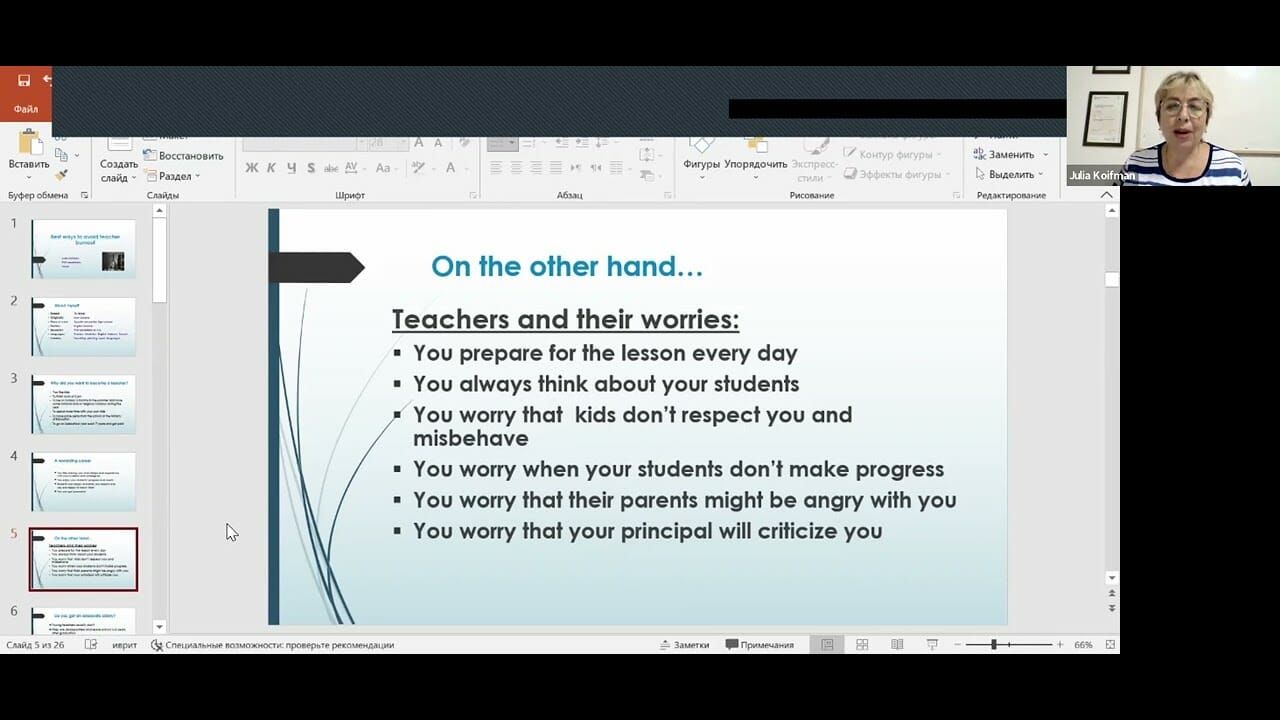- RESEARCHDistance Learning at AIU is enhanced by vast academic resources and innovative technologies build into the Virtual Campus: Hundreds of self-paced courses with video lectures and step by step lessons, thousands of optional assignments, 140,000 e-books, the Social Media & Networking platform allowing collaboration/chat/communications between students, and MYAIU develop students holistically in 11 areas beyond just academics.
- PROGRAMS OFFERED
- Areas of Study
- Courses and Curriculum
- Open Courses
- Register for a Program
- Associate Program
- Associate in Addiction Counseling
- Associate in Agriculture Food And Resources
- Associate in Anti Terrorism Security
- Associate in Behavior Analysis In Special Education
- Associate in Bioethics
- Associate in Climatology
- Associate in Cultural Theological Communication
- Associate in Culinary Arts
- Associate in Ecotechnology
- View all Associates Programs
- Bachelor Program
- Bachelors in Community Development
- Bachelors in Environmental Science
- Bachelor in Education (B.Ed, BS)
- Bachelors in Economics
- Bachelors in Entrepreneurship
- Bachelors in Financial Administration
- Bachelors in Human Resource Management
- Bachelors in Linguistics
- Bachelors in Nutritional Science
- Bachelors in Occupational Health and Safety
- Bachelors in Psychology
- View all Bachelor Programs
- Doctorate Program
- Doctor | of Biology (PhD)
- Doctorate in Business Administration (DBA, PhD)
- Doctor of Economics (PhD)
- Doctor of Electrical Engineering (D.Sc, PhD)
- Doctor of Finance (PhD)
- Doctorate in International Relations
- Doctorate in Information Technology (D.Sc)
- Doctor of Legal Studies (PhD)
- Doctor of Project Management (PhD)
- Doctor of Sociology (PhD, D.Sc)
- Doctorate in Sustainable Natural Resources Management
- View all Doctorate Programs
- Master Program
- Postdoctoral Program
- Postdoctoral in Animal Science
- Postdoctoral in Anti Terrorism Security
- Postdoctoral in Behavior Analysis In Special Education
- Postdoctoral in Bioethics
- Postdoctoral in Blockchain Technology and Digital Currency
- Postdoctoral in Business Management
- Postdoctoral in Cloud Computing
- Postdoctoral in Computer Engineering
- View all Postdoctoral Programs
AIU offers a wide range of majors in areas including the Arts, Business, Science, Technology, Social, and Human studies. More than 120 degrees and programs are available for adult learners at the associate’s, bachelor’s, master’s, doctoral and postdoctoral level. - VIRTUAL CAMPUS
Distance Learning at AIU is enhanced by vast academic resources and innovative technologies build into the Virtual Campus: Hundreds of self-paced courses with video lectures and step by step lessons, thousands of optional assignments, 140,000 e-books, the Social Media & Networking platform allowing collaboration/chat/communications between students, and MYAIU develop students holistically in 11 areas beyond just academics.
- ALUMNI
The world is YOUR campus!”, that is the message of AIU’s month magazine Campus Mundi. Hear the voices and see the faces that make up AIU. Campus Mundi brings the world of AIU to you every months with inspirational stories, news and achievements by AIU members from around the world (students and staff are located in over 200 countries).
Bachelors in Telecommunications
School of Science & Engineering
Academic Freedom to Discover Your Purpose
Open Curriculum Design at Atlantic International University
Embark on a transformative journey with Atlantic International University’s online Bachelor’s in Telecommunications program. Tailored for the digital era, this dynamic educational framework equips students with cutting-edge information in telecommunication, preparing them for diverse roles in the rapidly evolving tech landscape. We believe in diversity and flexibility. Hence, our flexible online format, students can pursue their degree from anywhere, enjoying the benefits of a global network of peers and expert faculty.
Through AIU’s andragogical model, students actively engage in co-creative learning, fostering bidirectional data exchange. Specialized coursework delves into details of telecommunication, telecommunication technologies, network design, and emerging trends. It places a strong emphasis on hands-on projects, research, and collaborative publications, empowering students with efficient business practices to make tangible contributions to the industry.
Whether aspiring to be network engineers, wireless communication specialists, or telecommunications consultants, one can emerge with a profound understanding of the field and the skills needed to thrive in a technology-driven world. Join AIU’s online Bachelor’s in Telecommunications systems to embark on a flexible and enriching educational journey that aligns with the demands of the modern telecommunication landscape.
Important: Explore this illustrative preview of potential study topics and areas to investigate during your academic journey. It’s crucial to note that this list is neither exhaustive nor mandatory, as AIU prioritizes personalized learning paths over standardized curriculum. This sample serves as a reference to showcase the diverse range of possibilities. If you’re captivated by AIU’s unique approach to curriculum design, would you be keen on delving deeper to gain a more comprehensive understanding?
Contact Us Today!
Begin Your Journey!
AIU’s Summer of Innovation and Growth gives you the ability to earn up to $5000 in tuition credit by completing free lessons and courses.
Whether you’re looking to acquire new skills, advance your career, or simply explore new interests, AIU is your gateway to a world of opportunities. With free access to 3400 lessons and hundreds of courses the ability to earn credits and earn certificates there’s no better time to start learning.
Join us today as a Guest Student and take the first step towards a brighter, more empowered future.
Explore. Learn. Achieve.
Courses and Topics in Bachelors in Telecommunications
Atlantic International University’s Bachelors in Telecommunications offers a dynamic curriculum, encompassing a range of courses and topics at the forefront of the industry. Students delve into foundational subjects like Network Engineering, Wireless Communication, and Data Analysis.
Advanced courses include Telecommunication Switching Systems, IoT Technologies, and Security in Telecommunications. The program emphasizes hands-on projects, allowing students to apply theoretical knowledge in real-world scenarios. With a focus on emerging technologies, graduates are well-equipped to navigate the evolving landscape of telecommunications, making meaningful contributions to the field.
- Engineering Programming
- Introduction to Signals & Systems
- Introduction to Circuits & Devices
- Circuits and Systems
- Digital Hardware
- Multivariate & Vector Calculus
- Electronics and Communications
- Differential Equations
- Engineering Design and Management
- Control Theory
- Probability and Random Variables
- Power Engineering
- Electronics
- Digital Signal Processing
- Telecommunication Networks
- Communication Theory
- Telecommunications System Modeling
Orientation Courses
Atlantic International University’s Bachelors in Telecommunications program offers comprehensive orientation courses, providing students with a robust introduction to the field. These courses cover essential topics such as telecommunications fundamentals, network protocols, and industry trends.
Through engaging materials and interactive sessions, students gain a foundational understanding of the program’s structure and objectives. The orientation courses serve as a valuable starting point, equipping students with the skills and insights needed for a successful academic journey in telecommunications at AIU.
- Communication & Investigation (Comprehensive Resume)
- Organization Theory (Portfolio)
- Experiential Learning (Autobiography)
- Academic Evaluation (Questionnaire)
- Fundament of Knowledge (Integration Chart)
- Fundamental Principles I (Philosophy of Education)
- Professional Evaluation (Self Evaluation Matrix)
- Development of Graduate Study (Guarantee of an Academic Degree)
Research Projects in Bachelors in Telecommunications
Bachelors in Telecommunications students delve into dynamic research projects at Atlantic International University, exploring the forefront of technological innovation. Guided by industry experts and faculty, these projects span diverse areas like 5G technology, Internet of Things (IoT), and network optimization.
Engaging in hands-on research not only hones their technical skills but also fosters critical thinking and problem-solving abilities. From developing efficient communication protocols to exploring emerging trends, students actively contribute to the evolution of the telecommunications landscape. This immersive research experience prepares them to tackle real-world challenges, equipping graduates with the expertise to lead advancements in the ever-evolving field of telecommunications.
- MBM300 Thesis Proposal
- MBM302 Bachelor Thesis (5,000 words)
Publication: At AIU, we recognize the vital role of disseminating cutting-edge research. Our commitment to academic excellence extends to providing platforms for publishing research findings. In the field of Telecommunications, we actively encourage our students to share their innovative discoveries, contributing significantly to the broader academic discourse. Prioritizing the publication of research not only amplifies the practical significance of their scholarly pursuits but also establishes a lasting foundation for emerging experts in Telecommunications.
The synergy between research endeavors and their subsequent publication underscores our dedication to nurturing the next generation of imaginative and knowledgeable Telecommunications professionals. This emphasis on sharing research outcomes reflects our ongoing commitment to cultivating a cohort of proficient Telecommunications experts.
Dissertation & Thesis Defense
In the final stage of the Bachelor’s in Telecommunications at AIU, students are presented with a unique chance to demonstrate their proficiency and innovative capabilities through an extensive thesis proposal. This critical stage marks the culmination of their educational journey, providing a venue to delve into complex topics within the Telecommunications studies program. The thesis defense, a fundamental element of the program, enables students to exhibit their research abilities, analytical thinking, and the practical use of their acquired skill, highlighting their preparedness to make significant contributions to the field after graduating from AIU.
Your Gateway to Telecommunications Excellence: Bachelors Program at AIU
Make the Right Choice
Transformative Journey of Bachelor’s Degree Student at AIU
It is truly a transformative journey for those pursuing higher education at Atlantic International University, because individuals evolve into a tech pioneer here. Through dynamic coursework and hands-on projects, they gain deep insights into cutting-edge technologies. Engaging with global experts and participating in groundbreaking research helps to enhance business. Hence, each person shapes the fate of telecommunications with the right tool and business practices adding their unique creativity.
The unique andragogical model fosters a co-creative learning environment, following a bidirectionally method of learning. Special projects challenge them to apply theoretical concepts in real-world scenarios, refining problem-solving skills. This journey culminates in collaborative publications, cementing their status as a contributor to the industry’s evolution. With a multicultural perspective and a commitment to excellence, the graduate emerges ready to lead, innovate, and drive positive change in the dynamic landscape of telecommunications.
Community & Social
The online program at AIU cultivates an energetic community using cutting-edge technologies and collaborative tools, ensuring a nurturing academic journey. Through platforms like the Virtual Campus, Mobile APP, MYAIU, AIULink, and AIUTV, students, faculty, and alumni of the colleges come together, creating a network of interconnected minds. Engaging in thought-provoking symposiums, webinars, and conferences fosters global connections among the community.
Accessing the Merlin Media Center provides a wealth of academic resources while staying linked through AIULink ensures ongoing connectivity. The AIU Virtual Campus, APP compatible with both Android and iOS, offers effortless access to programs, tools and academic resources. These platforms facilitate the sharing of personal narratives, exploring holistic development, and contributing to the betterment of humanity, shaping an AIU experience that stands unparalleled.
Academic Resources
At Atlantic International University, the Virtual Campus serves as an innovative center equipped with more than 25 specialized tools, all geared towards supporting and empowering students throughout their educational endeavors. Our newest feature, the Virtual Reality 3D immersive experience, elevates community interaction, nurturing growth, motivation, and inspiration among our diverse educational population.
Also, AIU includes the leading Artificial intelligence (AI) tools such as ChatGPT, Dall-E and Midjoruney, PDF Executive Assistance, Slide Generator Slide Generator plus others and is adding new AI tools to ensure students are fluent in this emerging trend and benefit from the boost in productivity they bring.
Within our extensive online library, comprising 260,000 books and 30 million peer-reviewed articles, alongside 105,000 resources co-curated by the AIU community, we establish an unmatched academic setting dedicated to fostering the growth, development, and success of our students.
Virtual Campus
Complete assignments online or offline at your convenience with 24/7 access to distance learning through AIU’s Virtual Campus. Step by Step guides including videos, tutorials, live webinars and examples for each course. All materials can be access on all web browsers as well as via AIU's Mobile App which brings all the features of the Virtual Camus to your Mobile Device.
My AIU Elements
MyAIU’s primary goal is to go beyond Academics, it looks to guide students through 11 elements that are key to living life optimally in all aspects. By identifying and reflecting on these key areas, an opportunity arises to holistically address them, through positive change, habits, reinforcement and tools to keep students on their chosen path.
AIU TV & Radio
The students have the opportunity to produce, edit and host their own show reaching a worldwide audience, the AIU community and giving notice of their expertise/passion in the subject. AIUTV & AIU Radio allow students to explore new ways to communicate, develop a platform and form potential collaboration with likeminded individuals.
AIU Campus Mundi
AIU Campus Mundi is a monthly magazine that gathers the most notable news and information about the university and its members in one convenient place. The magazine allows our community to be well informed, involved and keep in tough regardless of their geographic location. AIU Campus Mundi publishes, news, research, events, awards, academic achievements.
Graduation Ceremony
Each year AIU organizes graduation ceremonies where the students can assist and share their experiences with fellow students and academic members Participation in the ceremony is optional, the day’s events include conferences, research presentations, group meetings, networking, lunch and formal dinner.
Symposiums & Webinars
At AIU, our symposiums stand as crucial centers for knowledge and innovation, creating an active space for Bachelors in Telecommunications. These events play a vital role in sharing pioneering research, encouraging vibrant exchanges of ideas, and nurturing lively discussions. By participating in these symposiums, individuals receive invaluable exposure to a wide array of perspectives, sparking collaborative research initiatives that consistently push the boundaries within the field of Telecommunications.
Live Classes
AIU introduces an innovative approach to virtual learning by incorporating dynamic live sessions twice daily. One can also access these live classes from the archive that hosts 100s of classes that can be combined to personalize the academic journey. Led by seasoned faculty and experts from various industries, these sessions offer real-time discussions, interactive Q&A segments, and collaborative problem-solving, enriching your comprehension of community and public health.
Participating in these sessions augments your expertise, equipping you to shape policies and refine expertise and enhance career opportunities. AIU’s live classes promise intellectually engaging dialogues, up-to-the-minute industry perspectives, and personalized feedback from instructors, guaranteeing a rewarding journey through the study of Telecommunications.
Special Projects, Research, Publications, and Co-Authoring
At Atlantic International University, Bachelors in Telecommunications students engage in special projects, cutting-edge research, and collaborative publications during their college years. They actively contribute to advancements in telecommunications, working alongside faculty members and industry professionals. This hands-on approach fosters a dynamic learning environment, empowering students to co-author publications that contribute to the field’s growth and innovation.
Explore the Future of Connectivity with AIU’s Cutting-Edge Program
Your Path to Success
Career Center for Bachelors in Telecommunications
Atlantic International University’s Career Center for Bachelors in Telecommunications serves as a valuable resource for students, providing tailored support for a successful transition from academia to the professional world. The center offers personalized career counseling, resume building, and interview preparation.
Students gain access to a network of industry connections, job postings, and internships. With a focus on the dynamic field of telecommunications, the Career Center facilitates engagement with potential employers, industry events, and alumni. Workshops and webinars are organized to enhance essential skills and industry knowledge.
Through collaboration with leading companies, the center ensures relevance and that individuals are equipped to pursue diverse roles in network engineering, telecommunications, and emerging technologies. The Career Center at AIU is committed to empowering telecommunications graduates for a successful and impactful career journey.
Job Description
A Bachelor’s in Telecommunications graduate is equipped to excel in roles such as Network Engineer or Telecommunications Specialist. Responsibilities include designing and maintaining communication networks, troubleshooting technical issues, and ensuring optimal network performance. They collaborate with cross-functional teams to implement new technologies, conduct network assessments, and address security concerns.
A major in Telecommunication makes a student proficient in protocols and technologies, that they contribute to the development of robust telecommunication solutions. Strong problem-solving acumen, attention to detail, and knowledge of emerging trends make them integral in advancing connectivity and supporting organizations in diverse sectors, such as IT, telecommunications, and beyond. Their expertise is crucial for ensuring seamless and secure communication infrastructures.
Employment Opportunities for Bachelors in Telecommunications
- Network Engineer/Architect: Design, implement, and manage network infrastructures for organizations.
- Telecommunications Engineer: Work on the development, installation, and maintenance of telecommunications projects.
- Wireless Communication Engineer: Specialize in the design and optimization of wireless networks.
- Network Administrator: Oversee day-to-day operations of computer networks within an organization.
- VoIP Engineer: Focus on Voice over Internet Protocol (VoIP) technologies and services.
- Data Analyst/Telecom Analyst: Analyze data related to network performance and usage.
- IT Consultant: Provide expert advice on information technology solutions, including telecommunications.
- Security Analyst: Specialize in securing telecommunications networks.
- Project Manager (Telecommunications): Lead and manage projects related to the deployment of telecommunications infrastructure.
- Technical Sales Engineer: Combine technical knowledge with sales skills to promote and sell telecommunications solutions.
- Research and Development (R&D) Engineer: Contribute to the development of new technologies and solutions within the telecommunications field.
- Satellite Communication Engineer: Work on the design and maintenance of satellite communication systems.
- Broadcast Engineer: Support and maintain broadcasting equipment..
- Quality Assurance (QA) Engineer: Ensure the quality and performance of telecommunications products and services.
- Customer Support Specialist: Provide technical support and assistance to customers using telecommunications services.
- IoT (Internet of Things) Specialist: Work on integrating and optimizing telecommunications solutions for IoT applications.
- Cybersecurity Analyst (Telecommunications): Focus on protecting telecommunications networks from cyber threats.
- Technical Trainer: Train and educate individuals or teams on the use of telecommunications technologies.
- Regulatory Affairs Specialist: Navigate and ensure compliance with telecommunications regulations.
- Telecommunications Consultant: Provide expert advice to organizations seeking to improve their telecommunications infrastructure.
These opportunities span various industries, including telecommunications companies, IT firms, government agencies, healthcare, finance, and more. The demand for telecommunications professionals is expected to remain strong as technology continues to advance, and organizations rely on efficient communication networks.
Tools for Professionals with Bachelors in Telecommunications
Telecommunications professionals often use a variety of tools to assist them in their work. Here are some tools commonly used in the telecommunications field:
Associations for Professionals with Bachelors in Telecom
The below are the list of some professional associations relevant to individuals pursuing careers in telecommunications:
IEEE Communications Society: A leading global community in the field of communications, networking, and related technologies. Offers publications, conferences, and resources.
Association for Computing Machinery (ACM) – Special Interest Group on Data Communication (SIGCOMM): Focuses on the applications, technologies, architectures, and protocols for communication.
Telecommunications Industry Association (TIA): Represents the global ICT industry, providing networking and advocacy opportunities.
International Telecommunication Union (ITU): United Nations agency specializing in information and communication technologies.
National Association of Broadcasters (NAB): Represents the interests of television and radio broadcasters in the United States.
Wireless Innovation Forum: Focuses on the advancement of wireless communications technologies.
Connect Dreams to your Bachelor’s Degree
Request for more information
Requirements for Bachelors in Telecommunications
To pursue a Bachelor of Telecommunications, applicants typically need to fulfill specific requirements:
- Educational Background: High school diploma or equivalent with a strong emphasis on mathematics and physics.
- Academic Transcripts: Submission of high school transcripts showcasing proficiency in relevant subjects.
- Standardized Tests: Some universities may require standardized test scores, such as SAT or ACT.
- Letters of Recommendation: Submission of letters from teachers or professionals highlighting the applicant’s academic aptitude.
- Personal Statement: A well-crafted personal statement outlining the applicant’s interest in telecommunications and career goals.
- Resume: Some institutions may request a resume detailing academic achievements and relevant experiences.
- Writing Sample or Statement of Purpose: Depending on the university, applicants may need to provide a writing sample or a statement of purpose specific to telecommunications.
- Extracurricular Activities: Highlighting relevant extracurricular activities or experiences demonstrating interest in the field.
- Eligibility Criteria: Ensure compliance with specific eligibility criteria set by the university.
- Application Deadlines: Submission of applications within specified deadlines.
- Financial Aid Application: Completing the Free Application for Federal Student Aid (FAFSA) to assess eligibility for financial aid.
Prospective students should carefully review the admission requirements of the specific university offering the telecommunications program.
How Can You Apply?
To pursue a Bachelor’s in telecom, visit the university’s admissions section on their website and ensure it holds accreditation like AIU. Follow the prescribed application process, usually involving academic transcripts, standardized test scores (such as SAT or ACT), letters of recommendation, a personal statement, and potentially a resume.
Some schools might request a writing sample or a telecommunication-specific statement of purpose. Verify eligibility criteria and deadlines, and showcase pertinent extracurricular activities or experiences. Completing the Free Application for Federal Student Aid (FAFSA) can assist in assessing financial aid eligibility.
Financial Support & Scholarships
We are thrilled to offer a range of scholarships tailored for our undergraduate students. Please provide your information to explore various scholarship opportunities designed to support your academic pursuits. Let us assist you in achieving your educational goals and nurturing your scholarly ambitions.
How Much Does Bachelors in Telecommunications Cost Per Year?
We recognize the significance of financial flexibility in your educational endeavors. Hence, depending upon the type of program you choose, we have introduced a convenient monthly payment plan to make your pursuit of a bachelor degree manageable and free from financial worries. Our exceptionally affordable tuition fee covers the expense Bachelors in Telecommunications. So, secure your educational journey with AIU, where first-rate education aligns perfectly with your budget. Your aspirations are well within your grasp.
FAQs
Which are the top recruiting companies for BE Telecommunication Engineering?
The following are the list of global companies that hire BE Telecommunication Engineers or Bachelor of Networking person:
- Ericsson: A global leader in communications technology and services.
- Huawei: A Chinese multinational technology company specializing in telecommunications equipment.
- Nokia: A multinational telecommunications, information technology, and consumer electronics company.
- Cisco Systems: A multinational technology company that develops, manufactures, and sells networking hardware, software, and telecommunications equipment.
- Qualcomm: A semiconductor and telecommunications equipment company that designs and markets wireless telecommunications products.
- AT&T: An American multinational telecommunications company.
- Verizon Communications: An American multinational telecommunications conglomerate.
- Vodafone: A British multinational telecommunications company.
- Telefonica: A Spanish multinational telecommunications company.
- T-Mobile: A German-American wireless network operator.
- British Telecom (BT): A British multinational telecommunications company.
- NTT Communications: Japanese telecommunications company.
- Airtel: An Indian multinational telecommunications services company.
- Saudi Telecom Company (STC): A Saudi Arabian telecommunications company.
- China Mobile: A Chinese state-owned telecommunications company.
What subjects are covered in a typical Telecommunications degree program?
A typical Telecommunications degree program covers a range of subjects in the colleges to provide students with a comprehensive understanding of the field. The specific courses may vary among universities, but here are common subjects that are often included in a telecommunications degree program:
- Introduction to Telecommunications: Overview of the history, development, and current state of the telecommunications industry.
- Digital Signal Processing: Fundamental concepts related to the processing of digital signals used in telecommunications.
- Communication Systems: Study of communication models, modulation techniques, and signal transmission.
- Networking Fundamentals: Introduction to computer networks, protocols, and networking technologies.
- Data Communication: Understanding the principles of data transmission, protocols, and network architectures.
- Wireless Communication: Study of wireless communication technologies, including radio frequency (RF) structures and mobile communication.
- Telecommunication Networks: In-depth exploration of telecommunications network architectures, topologies, and protocols.
- Telecommunication Switching Systems: Analysis of switching techniques used in telecommunications networks.
- Antenna Theory and Design: Principles of antenna design and their applications in wireless communication.
- Optical Communication Systems: Introduction to optical fiber communication, including optical transmission and networking.
- Telecommunication Security: Understanding security challenges and solutions in telecommunication networks.
- Satellite Communication: Study of satellite, orbits, and their applications in global communication.
- Digital Communication: Advanced topics in digital communication, including coding theory and error detection.
- Network Management and Security: Techniques for managing and securing telecommunication networks.
- Internet of Things (IoT): Exploration of IoT technologies and their integration into telecommunications.
- Telecommunications Regulations and Policies: Examination of legal and regulatory aspects of the telecommunications industry.
- Project Management in Telecommunications: Application of project management principles to the planning and execution of telecommunications projects.
- Telecommunications Engineering Lab: Hands-on laboratory work to reinforce theoretical concepts and provide practical skills.
These subjects collectively equip students pursuing the course with the knowledge and skills needed to design, implement, and manage telecommunication systems in various industries. The curriculum may also include elective courses, internships, and a final project to enhance the chance of getting jobs with specialization in specific areas of interest within the field.
Is there a scope for telecom engineers in the future?
Yes, the scope for telecom engineers remains promising. As technological advancements, 5G deployment, and the growth of IoT continue, telecom engineers will be essential in designing, implementing, and optimizing communication networks. The demand for expertise in areas like wireless communication, network security, and emerging technologies positions telecom engineers at the forefront of shaping the digital future.
What is the work of a Telecommunication Engineer?
Telecommunication Engineers design, implement, and maintain communication networks, ensuring seamless connectivity. They work on projects involving wired and wireless systems, troubleshoot network issues, and optimize performance. Responsibilities include designing protocols, managing network security, and staying abreast of emerging technologies. Their work is crucial for developing efficient communication infrastructure, supporting data transmission, and advancing connectivity solutions in the digital age.

Contact Us
Atlantic International University
900 Fort Street Mall 905 Honolulu, HI 96813 [email protected]
Quick Links
Home | Online Courses | Available Courses | Virtual Campus | Career Center | Available Positions | Ask Career Coach | The Job Interview | Resume Writing | Accreditation | Areas of Study | Bachelor Degree Programs | Masters Degree Programs | Doctoral Degree Programs | Course & Curriculum | Human Rights | Online Library | Representations | Student Publication | Sponsors | General Information | Mission & Vision | School of Business and Economics | School of Science and Engineering | School of Social and Human Studies | Media Center | Admission Requirements | Apply Online | Tuition | Faculty & Staff | Distance Learning Overview | Student Testimonials | AIU Blogs | Register for Program | Privacy Policy | FAQ































